10 Things you should know about Apple and antitrust

Apple's reported problems with the Feds -- possible investigation by the Federal Trade Commission, US Justice Department, or both -- needs a primer. So I've prepared a list of 10 Things you should know about Apple and also US antitrust law. Should the FTC launch the investigation, as explained in #7, Apple's short-term risk would be greater but some kind of amicably resolution more likely. I would do another list then.
Then there is #9, where I for the first time express my feelings about the US government's antitrust case against Microsoft and what that should realistically mean for Apple. With that introduction, here are the 10 things, presented in order of informational value rather than importance:
Wall Street Journal's pay-more pricing is stupid

Are you paying Rupert Murdoch 18 bucks a month for a Wall Street Journal iPad subscription? I dare you to confess. Today, during News Corporation's earnings call, CEO Murdoch claimed that the Journal has 64,000 active users on iPad. Presumably one of them is you. Confess -- comments are open -- and tell us all what is your reason.
I ask because I see the Journal as having gone too far with its paywall approach. I'm testing iPhone 3GS again, and I downloaded the WSJ app last week. I logged in with my Web subscription account, and the Journal let me read for a couple days. Then came the demand for more cash. Not much, just a buck a week. But I'm already paying for the Web subscription, for which the Journal charges about $150 a year. So Murdoch wants another 52 bucks a year for iPhone and about another $215 for iPad, which I also am testing? OK, it's only $207 a year for iPad if taking advantage of the $3.99-a-week promotion.
Will Steve Jobs' 'Thoughts on Flash' put Apple in trouble with the Feds?

It's the question I'm asking after the New York Post reported that the "Department of Justice and Federal Trade Commission are locked in negotiations over which of the watchdogs will begin an antitrust inquiry into Apple's new policy of requiring software developers who devise applications for devices such as the iPhone and iPad to use only Apple's programming tools."
Yeah, yeah, some people can scoff and, say, "It's just the Post!" But the New York Post was packaging gossip and jamming scoops long before Gawker publisher Nick Denton was in diapers. The Post claims that regulators "are days away from making a decision about which agency will launch the inquiry." At issue is Section 3.3.1 of Apple's developer agreement, which prohibits cross-platform technologies like Flash and Java. (See Scott Fulton's excellent analysis about the antitrust issues.)
Apple has gone too far
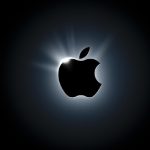
Last month, I asked Betanews readers to answer question: "Has Apple gone too far?" For the majority, the answer is a resounding "Yes!" I didn't expect the vehement Apple whacking reaction. Did you?
Today is appropriate day for readers' answers. Apple announced sales (more likely shipments) of 1 million iPads and that App Store had reached 200,000 applications. Apple restrictions around iPad and the iPhone OS 4.0 SDK led to my asking the question. Additionally, today, unconfirmed reports have the US Justice Department and Federal Trade Commission jockeying over which agency could start an Apple antitrust investigation. The investigation would look at Section 3.3.1 of Apple's developer agreement, which restricts cross-platform technologies like Flash or Java.
The real reasons why Apple silenced Lala (and bought it, too)
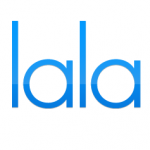
As dorky character Ned Ryerson said in movie "Groundhog Day": "Am I right or am I right? Or am I right? Am I right?" Apple is shuttering the Lala service on May 31. While pundits galore said Apple was moving into the streaming music business, I asserted something else: That Apple bought Lala to improve music discovery and to combat Google music search.
Apple announced the Lala acquisition in December, when I blogged "Lala could make iTunes' Genius smarter." As I explained then, the acquisition is about "improving iTunes music discovery and competitively combating Google search." About two months before Apple bought Lala, Google improved its music search capabilities, which included free streams from various services, including Lala.
Steve Jobs' 'Thoughts on Flash' is just smoke
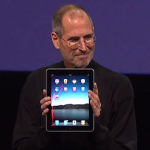
Apple CEO Steve Jobs' "Thoughts on Flash" memo is a rare glimpse into the mind of the rarest breed: A high-tech, cult figure who isn't a geek. Apple posted the nearly 1,700-word essay earlier today, in response to the ongoing debate about Adobe Flash on iPhone OS devices. Or perhaps more directly: Adobe's April 20 announcement that it had abandoned Flash development for iPhone OS devices; primary focus is shifting to Android.
The Flash debate got ugly earlier this month after Apple announced iPhone OS 4 would not support the Adobe technology and made developer agreement changes that prohibited use of cross-platform tools that could enable rival platforms like Adobe's. Last week, Mike Chambers, Adobe's Flash platform Principal Product Manager for developer relations, sounded the retreat in a blog post.
Google's good news: Microsoft cannibalizes Yahoo search share

Microsoft sure is gaining search share fast. Too bad it's cannibalizing Yahoo rather than gaining on Google.
Today, Nielsen released March 2010 US search share numbers, and, whoa, are they good news-bad news for Microsoft. The good news: Microsoft search share is 12.2 percent. The bad news: Microsoft closed the gap on Yahoo to within 1.2 percent. Yahoo's search share is 13.4 percent.
HP buying Palm is like Ke$ha marrying John McCain

Exactly, what do they have in common? HP-Palm is a merger of necessity. HP needs to jumpstart (for the umpteenth time) its mobile strategy and Palm needs to be bought by anybody or perhaps die. Hey, there is anybody and then there's anybody else would be better. In a parallel universe the situation is different. HP is doing what I said Microsoft should: Buy Palm, and what a steal HP is getting for $1.2 billion.
Perhaps I'm missing something about things in common. While I was writing this post, Walter Lounsbery tweeted to me: "HP and Palm both share that has-been entrepreneurial spirit." Ouch! Get the Neosporin! And a Band-Aid! Alex Scoble poured salt on the wound. In a response to me at FriendFeed: "They both sell mobile devices...just no one knows that HP sells mobile devices." Whoa, put away that baseball bat, Alex!
10 reasons to get excited about the Nokia N8
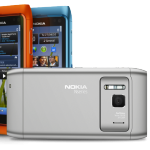
Move over Apple, Nokia isn't ready to give up its market share leading position just yet. After two failed flagship smartphone attempts -- the N97 and N900 -- Nokia has cued up the drool-worthy N8 for third quarter release. I'm suddenly excited about a Nokia handset again, and you should be, too. The N8 might also be the Nokia handset to crack the US market.
Nokia is leaning on its strengths in hardware innovation, while improving software and services. The handset manufacturer has long excelled at hardware, whereas Apple does much better with software. For example, Nokia shipped cell phones with great cameras years before Apple sold one iPhone. But Nokia has struggled to extend steller photo and video capabilities into the capacitive touchscreen era.
Readers react to police raid on Gizmodo editor's home
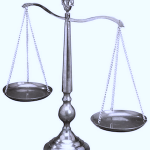
Yesterday, I asked Betanews readers: "Should the police have been allowed to raid [Jason] Chen's home and confiscate his computers?" How did you answer? I've randomly picked some of the responses -- hoping to filter out some of the noise for better readability (There are more than 135 comments as I write this post).
But first a quick recap of what happened and some of the broader reaction: Yesterday, Gizmodo revealed that on Friday evening, police searched and seized computers from Chen's home. Chen is a Gizmodo editor and writer of the first story about Apple's so-called "next iPhone," which the tech blog paid $5,000 to obtain. Gizmodo has since returned the prototype to Apple.
Cops raid Gizmodo editor home -- you don't mess with Steve Jobs
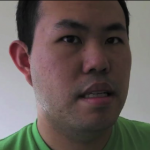
Gizmodo's big "next iPhone" scoop has generated more than pageviews. Now it's the police raid. Late this afternoon -- actually at stock market close -- the gadget blog posted about the police raid, which occurred Friday night at the residence of Gizmodo editor Jason Chen. Law enforcement executed a search warrant before confiscating -- count `em -- four PCs and two servers. Chen wasn't home. The police broke down a door to enter his home.
The timing (Friday night) and location (Chen's home) are oh-so revealing. Somebody wants to send a message to reporters about obtaining information and items that might belong to a big corporation -- say, Apple. While I've publicly scolded Gizmodo for scooping stolen goods (pun intended), the situation as recounted by the tech blog (and not yet corroborated) chills my soul. The action as described stinks of harassment, intended to scare off the free press.
Facebook scores huge branding coup with 'Like'
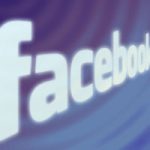
The most successful brands share several attributes in common. One of the most important: Ownership of a single word that defines the brand. Last week, Facebook made the word "like" its own, in one of the biggest branding coups in decades.
"Like" is seemingly everywhere this week and associated with Facebook. The social network didn't just extend the mechanism beyond its territorial borders, but claimed ownership over the word, too. Backed by the social network's reach and popularity -- approaching 500 million subscribers -- and Open Graph protocol, the "Like" thumbs-up icon already appears on hundreds of thousands of Web pages outside Facebook. Perhaps then, Facebook's branding coup is double -- not just 'like' but the thumbs-up symbol, too.
Apple closes the revenue, income gap with Microsoft to just $1 billion
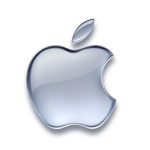
What a difference 12 months and an accounting change make. As I briefly noted yesterday, only about $1 billion separated Apple from Microsoft results in the first calendar quarter. With so many blogs obsessed about when Apple's market capitalization might exceed Microsoft's, perhaps the focus should be on earnings.
Some people might not understand the significance. The comparisons here are real, because they're not fudgy market share or market capitalization comparisons. Apple has closed a huge revenue gap on Microsoft and lessened the lead in net income. This year promises the most visceral competition between Apple and Microsoft ever.
Microsoft Q3 2010 by the numbers: Beats the Street, but Apple closes in
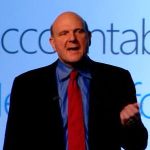
Recovering IT spending, robust worldwide PC shipments and strong Windows 7 adoption helped Microsoft to beat the Street. The software giant announced fiscal 2010 third quarter earnings, ended March 31, after the Bell, today.
Microsoft revenue rose 6 percent to $14.5 billion, up from $13.65 billion a year earlier. Operating income: $5.17 billion, up 17 percent. Net income: $4.01 billion, or 45 cents a share. Net income rose by 35 percent and earnings per share by 36 percent year over year. If not for a $305 million deferral related to Office 2010, Microsoft would have reported $14.81 billion revenue.
Docs.com: The surest sign yet of Microsoft's defeat
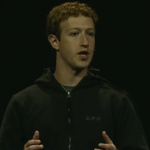
Facebook CEO Mark Zuckerberg made some amazing announcements yesterday, during the f8 conference. Docs.com wasn't one of them.
"You can discover, create, and share Microsoft Office documents with your Facebook friends," according to the service's Website. What Docs.com really does more is provide Microsoft a lifeline, as the company seeks to maintain the relevance of its Office-Windows-Windows Server applications stack before the rising mobile device-to-cloud applications/services stack. Docs.com is a futile, short-sighted enterprise that acknowledges Microsoft has already lost the new century's platform wars.
Joe's Bio
Joe Wilcox is BetaNews executive editor. His motto: Change the rules. Joe is a former CNET News staff writer, JupiterResearch senior analyst, and Ziff Davis Enterprise Microsoft Watch editor.
Ethics StatementBetaNews, your source for breaking tech news, reviews, and in-depth reporting since 1998.
© 1998-2025 BetaNews, Inc. All Rights Reserved. About Us - Privacy Policy - Cookie Policy - Sitemap.
